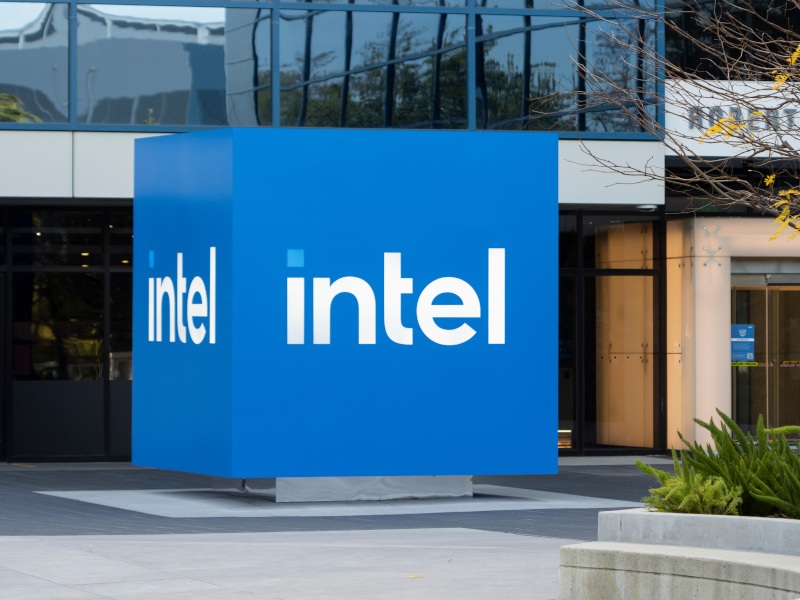
Intel’s CEO said 2023 was a ‘tremendous year’ for transforming the company, but its annual revenue fell in some of its key businesses.
Intel ended 2023 on a positive note, but had a lackluster year overall with revenue drops among its key businesses.
The company’s fourth quarter saw revenue reach $15.4bn, an increase of 10pc compared to the same period in 2022. Intel also had an operating margin of 16.8pc, a more efficient result from the 8.1pc operating margin loss last year.
But Intel expects to earn revenue between $12.2bn and $13.2bn in the first quarter of 2024, which is below analyst expectations of $14.15bn, CNBC reports. The company’s shares have dropped as a result of this outlook. Intel stock grew by roughly 65pc over the past year.
The tech company confirmed last year that it would focus on a strategy of cost reductions and job cuts, after CEO Pat Gelsinger admitted the company had “stumbled” and “lost momentum”. This followed plans announced in October 2022 to “aggressively” address costs for 2023, with a goal of reaching $3bn in cost reductions last year.
Gelsinger said the last quarter of 2023 was strong for Intel and that it surpassed expectations for the “fourth consecutive quarter”.
“The quarter capped a year of tremendous progress on Intel’s transformation, where we consistently drove execution and accelerated innovation, resulting in strong customer momentum for our products,” Gelsinger said.
But Intel’s results for 2023 appear weaker overall than 2022, with total revenue being $54.2bn last year compared to 2022’s $63.1bn. Net income for 2023 also fell to $1.7bn, an annual decline of 79pc.
Intel’s client computing group saw revenue fall by 8pc overall last year, as the PC slump took its toll on the business. But the fourth quarter suggests this business is back on the rise, as revenue was up 33pc compared to the last quarter of 2022.
Intel was steadily pumping investment into generative AI ventures last year as the technology exploded into the mainstream. In August 2023, the company was one of several major tech players to invest in AI start-up Hugging Face. It also backed AI21 Labs, an Israeli generative AI start-up co-founded by Amnon Shashua, who previously founded Intel’s self-driving car unit Mobileye.
Earlier this month, Intel announced the formation of Articul8, an independent spin-out providing businesses a vertically optimised generative AI software platform.
Intel’s foundry services division saw significant growth of 103pc in revenue last year, reaching $952m. The company has been working on its IDM 2.0 strategy, which involves combining Intel’s internal factory network with third-party capacity as well as new Intel foundry services.
Ireland’s role in this ambitious plan included the creation of 1,600 permanent high-skilled jobs in 2021.Last August, Intel reached an important milestone in its Fab 34 facility based in Limerick, bringing it closer to producing the company’s latest semiconductors. The facility opened in September 2023.
10 things you need to know direct to your inbox every weekday. Sign up for the Daily Brief, Silicon Republic’s digest of essential sci-tech news.

